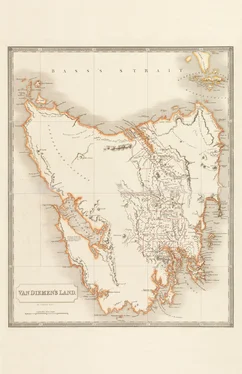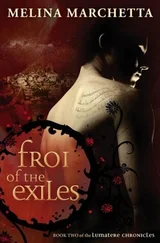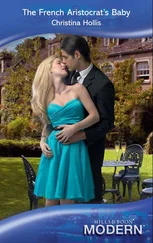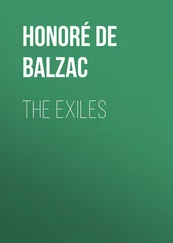“No, stay with her. Please.”
“But ye’ve just—”
“I’ll be careful, I promise. I don’t want her to be alone.” Evangeline swung her legs over the side of the bed, and Hazel helped her to stand. Suddenly lightheaded, she swayed back against the bed.
Hazel eyed her. “This is not a good idea.”
“Hazel, please. ‘Gentle breath of yours my sails must fill, or else my project fails.’”
Hazel rolled her eyes. “‘You cram these words into mine ears against the stomach of my sense.’”
“Oh!” Evangeline said, clasping her hand. “You’re my best student.”
“Well, you’re my best teacher. My only teacher, truth be told.” She smiled that vulpine smile.
Evangeline smiled back. “Look after my daughter while I’m gone, will you?”
“She’s sleeping. She’ll be fine. Hurry back.”
Evangeline’s belly was loose under her gown, her bare feet unsteady. She climbed the ladder slowly, stopping to catch her breath with each rung. At the top she paused, her heart beating in her ears, gazing up into the velvet darkness at a thin disk of moon. Though the sky was clear, the air still smelled of rain. Taking a breath, she crossed the sea-slick deck to the railing. Inky water roiled beneath the ship, glittering in the moonlight. She looked out at the whole beautiful expanse of the sea.
Hearing a noise behind her, she turned.
A figure was sprinting toward her. A man. In the dim light she could see his sandy hair and bare arms, the sharp angle of his jaw. And then he was on her, his hands on her shoulders.
Buck.
“No,” she gasped. “What are you—”
He pushed her against the railing. “You’ll pay.”
She smelled him, alcohol and perspiration. Felt his breath on her neck. He slammed her against the railing again with such force that the brass nails jutted into her back and she felt her legs buckle, her feet slip out from under her. And then he was lifting her up, up, to the top of the rail, the ropy muscles of his arms taut around her back. “No—no! What are you—”
“Stop!” a woman shrieked. It was Hazel. “Stop!”
For a moment Evangeline hovered on the hard wood of the railing. Then Buck let go, and the world tilted. She screamed as she fell backward through the darkness. Her baby lay swaddled in the surgeon’s room, and here she was, falling, falling through the air. Her mind refused to believe it. This couldn’t be happening. It made no sense.
The water hit her shoulder first, a hard slap, a shock of pain. She moved her legs instinctively, though they were tangled in her gown and she didn’t know what she was doing. I don’t know how to swim, she thought; I don’t know how to stay afloat.
Her daughter on the birthing bed, alone.
I left my baby lying here to go and gather blueberries . . .
She was sinking. Sinking. Slowly at first, and then her chin was underwater. Her lips. Her nose, her eyes. She strained to see in the grainy darkness, eyes stinging from the salt. Frantically she moved her arms, struggling in her gown, eyes wide open as she tried to fight her way toward the surface, toward the light. But she was falling, still, suspended in space. Alone, alone, all, all alone, / Alone on a wide wide sea! Her gown rose up, filmy as a handkerchief . . . Cecil’s white handkerchief; lion, serpent, crown . . . And she was fair as is the rose in May. . . . All lost, lost. The ruby ring. The handkerchief. The tin ticket on the red cord.
In the dim recesses of her mind she remembered something she’d once read about the act of drowning—that the terror was in resisting, in refusing to accept. Once you let go, it wasn’t so hard; you just sank into the water, cool and obliterating.
By night or day, / The things which I have seen I now can see no more.
She closed her eyes. Pushing away the terror, she withdrew deeper into herself. Here she was now in the foyer of the vicarage in Tunbridge Wells, grabbing her bonnet from the peg, opening the heavy front door and stepping out onto the stone stoop, pulling the door closed behind her. Setting off on the footpath, a straw basket over her arm. There was a time when meadow, grove, and stream, / The earth, and every common sight, / To me did seem / Apparelled in celestial light . . . She meandered past the privet hedge tangled with roses, that old willow shushing in the wind. Heard the chimes of a church bell, a woodpecker knocking on a tree, a barking dog. Before long, she’d cross the stone bridge over the stream that led to the mountain trail, with its craggy rocks and sour-sweet grass, its grazing sheep and purple thistles. Her favorite place on earth, just around the bend.
Mathinna
The last Aborigines were caught about a fortnight ago, and sent to Flinders Island, so that our little native girl is the only one remaining here. She is improving I think, though it will be a long time before she becomes quite civilised.
—Diary of Eleanor Franklin, 1840; daughter of Sir John Franklin, Lieutenant-Governor of Van Diemen’s Land, 1837–1843
Government House, Hobart Town, 1840
Tall, slope-shouldered, with a broad forehead, translucent eyelashes, and yellow hair, Eleanor Franklin was, indeed, rather plain. She was also the first person Mathinna had met on Van Diemen’s Land who seemed utterly nonchalant about her presence. “Oh. Hullo. They’re hard boiled,” she said by way of introduction, waving her hand wearily toward a bowl of eggs when Sarah introduced Mathinna to her in the nursery the morning after she arrived. “I despise hard boiled.”
As they ate, they could hear the housekeeper, Mrs. Crain, speaking in a low whisper with an elderly woman—Miss Williamson, a governess who’d come with the family from England. “It was quite enough to try this experiment once, with that incorrigible boy,” the governess huffed. “To expect me to attempt to educate another savage is too much to ask.”
“It is Lady Franklin’s request, not mine,” Mrs. Crain said. “You may take it up with her, if you wish.”
Eleanor looked up. “I could tutor the girl. Might as well put my French to good use, since I’m not doing anything else with it. This place is so dull .”
And so it was that for three hours a day, three days a week, Mathinna and Eleanor met in the schoolroom after breakfast. Eleanor treated Mathinna the same way she treated her dog, Sandy: with a mild, lukewarm affection. What she lacked in smarts, Eleanor made up in effort; she dutifully taught Mathinna to add and subtract and spell. One week she devised a lesson on architecture. She showed her pictures of Gothic design, with its thrilling gargoyles and grotesques, and classical, with its emphasis on proportion and harmony. The fashion in Hobart Town was for boring Georgian, she said, all tiled roofs and sandstone exteriors. Like Government House, the building they were in.
Eleanor explained how the calendar worked, days turning into weeks into months into years, and though Mathinna paid attention, she didn’t much see the point. The schoolteacher on Flinders had kept a date book open on his desk in which he jotted precise notes about the seasons, particularities of the weather, and his perambulations around the island, but the Palawa elders scoffed at such recordkeeping. Didn’t these colonists know that time doesn’t move in a line from past to present but instead is continuous? That spirits and humans, animals and plants, are connected by the land, which binds ancestors to descendants in an eternal moment? Mathinna started to explain this, as best she could remember, but Eleanor’s eyes got a faraway, glazed look and she picked at her fingernails until Mathinna stopped talking.
More successful was the study of French. They practiced with Eleanor’s collection of marionettes. After several weeks, their puppets—a blond princess in a powder-blue ball gown and a tiara, and a mountain maid wearing a dirndl—were conversing:
Читать дальше












